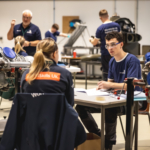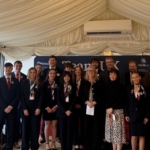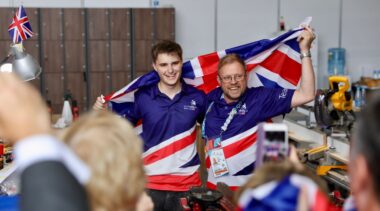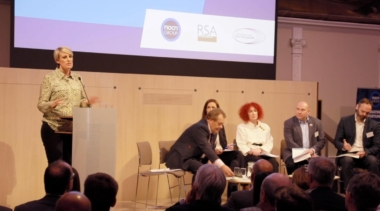As a member of the WorldSkills network of over 80 countries and states, we are well-placed to create international best practice exchanges. Here Jeanette Prole, shares how we are leveraging the power of our international relationships to drive up skill and training standards in the UK:
Through our best practice exchanges, we aim to shape curricula and training activities so that guided by their teachers, students and apprentices strive for excellence, rather than competence. This is a continuous process as industry practice evolves and educators are helped to keep up with developments. Best practice exchanges are formed of digital panel discussion groups bringing UK and overseas experts together with educators and employers to explore innovative solutions to universal challenges. In March 2021 we held 12 discussions identifying four common challenges:
- qualifications don’t always keep pace with individual sector requirements, so there is a risk that newly qualified young people leave training without all the skills they need to carry out their role in the workplace
- not all trainers have the most up to date skill set and industrial upskilling is difficult in some vocational areas and not consistently adopted across all
- many education providers don’t have the resources to invest in the latest training equipment and technology
- mindset and personal qualities such as resilience, time-management and positivity and responsibility are often as important to employers as technical skills when recruiting young people.
We have 35 skills in our international portfolio and aim to have hosted a best practice exchange for most of these by the end of 2022. Our UK training managers in each given skill will invite WorldSkills experts from overseas to become involved if they have achieved a high standard of training and competition success. This is so that all members of the exchange can learn from examples of best practice. Examples include how member countries have addressed any of the four key challenges described earlier, or other innovations which can add value to the way the skill is developed here in the UK.
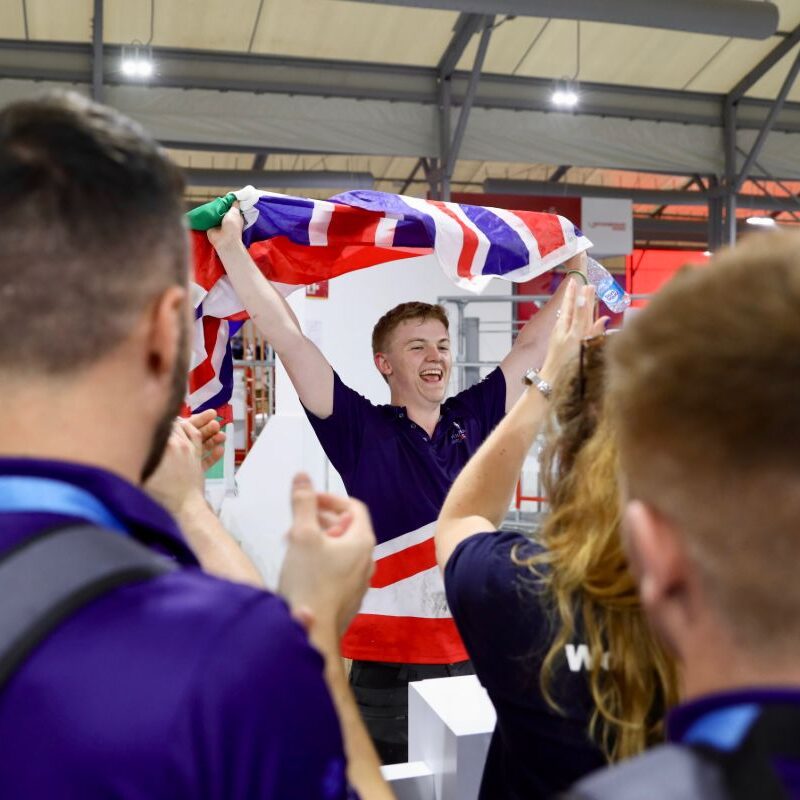
Drawing on international expertise
We are uniquely placed to draw on international expertise through our network of international training managers. UK training managers act as judges in collaboration with their international counterparts and discuss changes needed to the biennial WorldSkills Competition, known as the ‘Skills olympics’ and WorldSkills occupational standards after each competition. This is how we continually raise professional standards in training and competition to best practice levels, across the world, supporting the criteria for future competitions and informing curricula planning.
Emerging themes
We held 20 best practice exchanges in 2021 and all have been well received and given valuable insights into individual skill development. Areas for discussion have included: Future developments for each of the skill areas, best practice in industrial upskilling for practitioners and how to develop wider employability skills in students and apprentices.
Over 45 WorldSkills training managers took part in both the best practice exchanges and online competitions between countries called, international pressure tests. These saw over 110 young people involved in skills such as mechanical engineering CAD, wall and floor tiling and cyber security. Representatives from over 34 countries and more than 150 UK educators have been involved so far.
We look to expand this programme over the coming 12 months to gather best practice on embedding the WorldSkills occupational standards into curriculum delivery and how using competition practices such as pressure testing and mindset development can have a positive impact on driving excellence in TVET worldwide.
Sharing with TVET educators to raise standards in teaching and learning
Through the best practice exchanges, we have created a firm platform on which to build our intelligence, drawing on international collaboration and sharing of best practice. We share this free to access knowledge and expertise with UK TVET educators through our:
- Technical masterclasses in digital construction; mechanical engineering CAD; cyber security; IT networking; mechatronics and industry 4.0; industrial electronics; CNC milling/turning; automotive refinishing; automotive body repair and automotive technology.
- Skills Development Hub digital resources designed to support FE college educators and independent training providers. In the last 12 months over 400 FE colleges and independent training providers have accessed the Hub benefiting more that 1,500 young people right across the UK.
- Centre of Excellence programme endorsed by NCFE which involves peer-led CPD, the transference of global insights to drive standards and sharing best practice benefiting 37 specially selected FE colleges and training providers.
- Innovation Network made up of 44 FE colleges and training providers, this group facilitates the sharing of best practice.
